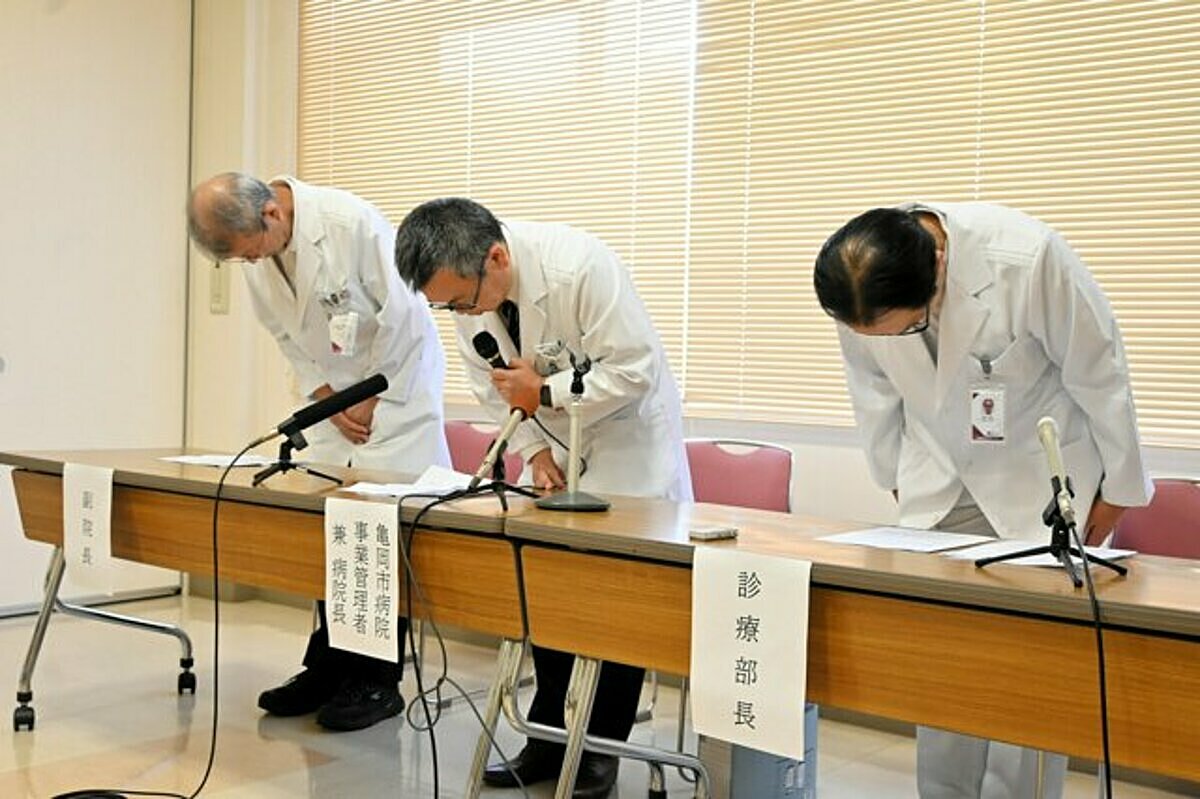Kameoka City Hospital in Kyoto admitted on 7/8 to overlooking a kidney cancer case due to a lack of thorough examination, despite a CT scan indicating early signs of the disease. The patient, now in his seventies, is undergoing chemotherapy for stage 4 kidney cancer.
In 1/2021, the Kameoka resident visited the emergency room suspecting a rib fracture. A chest CT scan ruled out the fracture, and he was discharged. However, a radiologist identified a cyst-like shadow on his kidney, noting in the report the need for further examination to rule out renal cell carcinoma (RCC).
Despite subsequent visits for hypertension treatment, no further tests were conducted. In 10/2024, experiencing coughing, phlegm, and lower back pain, the patient underwent another CT scan of his chest and abdomen at the city hospital. The results revealed no detailed examination had been performed since 2021. The attending physician attributed the oversight to being overwhelmed with the Covid-19 pandemic.
 |
Kameoka City Hospital officials bow in apology to the patient and his family during a press conference. Photo: Asahi |
Kameoka City Hospital officials bow in apology to the patient and his family during a press conference. Photo: Asahi
By the end of 2024, the patient was transferred to Kyoto Prefectural University of Medicine, where he received the stage 4 kidney cancer diagnosis with lung metastasis.
Kameoka City Hospital acknowledged their error, apologized, and agreed in July to cover all of the patient's medical expenses. Negotiations for further compensation, including emotional distress, are ongoing.
Hospital director Hiroki Tanaka stated in a press conference that a new system will be implemented to track cases requiring additional testing from initial imaging to completion, preventing similar incidents.
Experts emphasize the gravity of overlooking imaging results, which can have severe consequences. This case highlights a global healthcare challenge: overwork, especially during crises like pandemics, increasing the risk of errors. Large hospitals, handling vast numbers of patients and data, often struggle to maintain rigorous follow-up procedures, particularly for cases needing specialized re-examination. The result, as seen here, can be a missed early cancer diagnosis, depriving patients of timely treatment and leading to advanced-stage disease.
Thuc Linh (Asahi)












